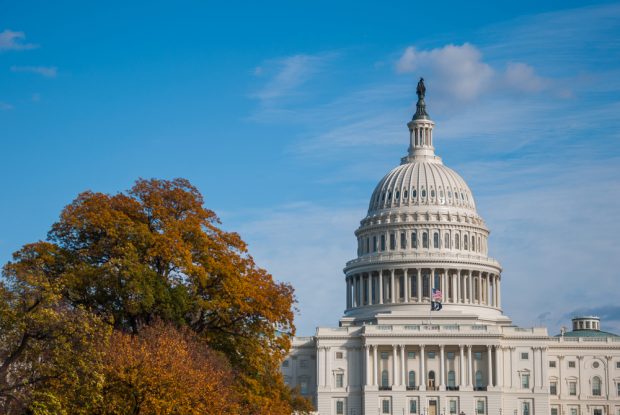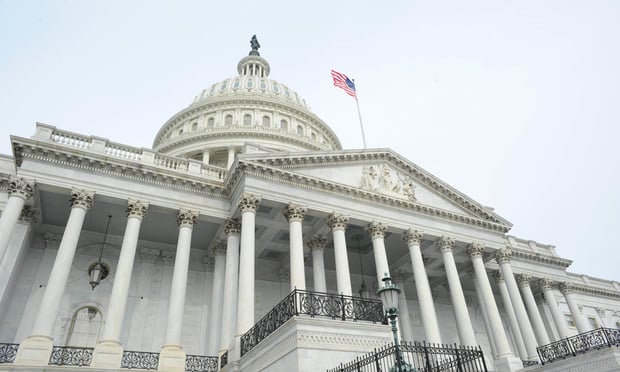 United States Capitol Building, Washington D.C. (Source: Shutterstock)
United States Capitol Building, Washington D.C. (Source: Shutterstock)
House members are pushing their leaders to enact legislation to extend two separate programs with tight deadlines—the Community Development Financial Institutions program and the National Flood Insurance Program.
The CDFI program is included in the Financial Services appropriations bill whose programs expired on Sept. 30—the end of the fiscal year. House supporters of the program want appropriators to provide at least $304 million for the program; that funding level was included in the House version of the Financial Services funding bill.
Recommended For You
Separately, authorization for the NFIP program expires on Nov. 21 and a bipartisan group of House members is urging congressional leaders to enact program changes in an effort to avoid insurance premium increases that may occur as a result of changes FEMA is scheduled to impose on homeowners.
The CDFI program received about $248 million during the current fiscal year; the Senate appropriations measure calls for the same funding level for FY20.
The House, on the other hand, provided about $304 million for the program. House members led by Rep. Carolyn Maloney (D-N.Y.) are appropriators to ensure that the program receives $304 million.
"Access to affordable credit is a pressing issue in many underserved rural, urban, and Native communities," the members said, in a letter to House Appropriations Chairwoman Nita Lowey (D-N.Y.) and the committee's ranking Republican, Kay Granger of Texas. "The CDFI Fund's mission is to expand the capacity of CDFIs to provide credit, capital, and financial services to underserved populations and communities across the country."
Separately, a bipartisan group of House members sent congressional leaders a letter demanding affordable insurance rates for the NFIP program. The NFIP has been operating on a series of 13 short-term renewals.
In the letter, the members warn that without congressional action, FEMA will institute a new methodology for risk next year. They said that new methodology will result in higher insurance premiums for homeowners.
They said that while members of Congress continue to work on an overhaul of the NFIP program, even those efforts would not stop FEMA from instituting a policy that abandons flood plain maps and zones in favor of a series of models.
They added that congressional action is needed to stop FEMA from adopting policies that would significantly increase insurance premiums.
© 2025 ALM Global, LLC, All Rights Reserved. Request academic re-use from www.copyright.com. All other uses, submit a request to [email protected]. For more information visit Asset & Logo Licensing.







